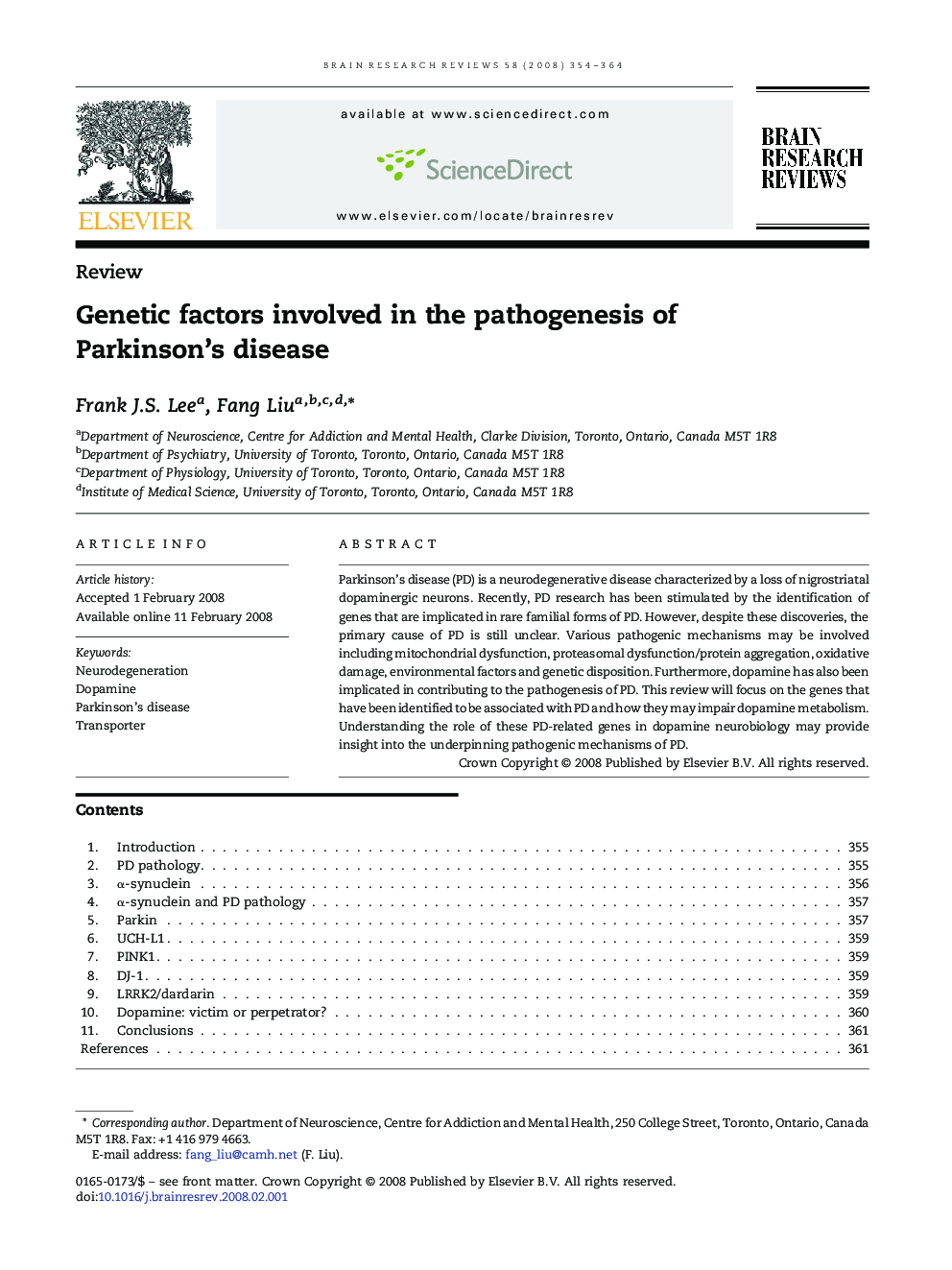| Article ID | Journal | Published Year | Pages | File Type |
|---|---|---|---|---|
| 4333868 | Brain Research Reviews | 2008 | 11 Pages |
Parkinson's disease (PD) is a neurodegenerative disease characterized by a loss of nigrostriatal dopaminergic neurons. Recently, PD research has been stimulated by the identification of genes that are implicated in rare familial forms of PD. However, despite these discoveries, the primary cause of PD is still unclear. Various pathogenic mechanisms may be involved including mitochondrial dysfunction, proteasomal dysfunction/protein aggregation, oxidative damage, environmental factors and genetic disposition. Furthermore, dopamine has also been implicated in contributing to the pathogenesis of PD. This review will focus on the genes that have been identified to be associated with PD and how they may impair dopamine metabolism. Understanding the role of these PD-related genes in dopamine neurobiology may provide insight into the underpinning pathogenic mechanisms of PD.
